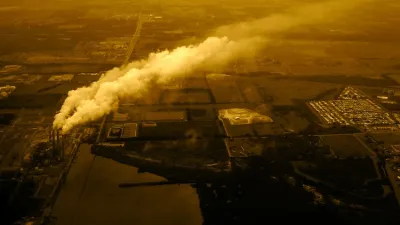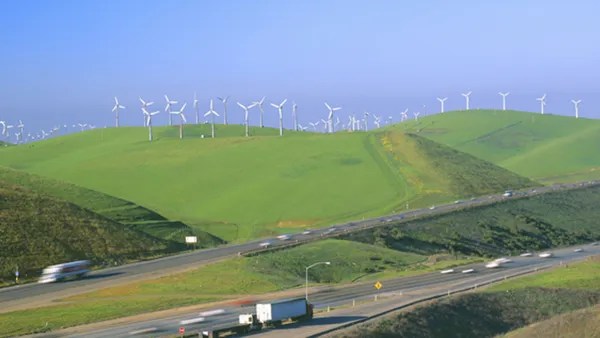Even as the world (unsuccessfully) tries to formulate a treaty to get nations to reduce their carbon emissions, researchers indicate it may be too late - the tipping point may have been reached. But what if CO2 could be extracted from the air?

Pipedream? Not if Carbon Engineering, a Canadian start-up company "formed in 2009 with $3.5 million from Bill Gates and others" has its way. A more immediate application of the technology, however, may lie "in developing a rational price for carbon emissions" according to Timothy A. Fox, head of energy and environment at the Institution of Mechanical Engineers in London.
Anne Eisenberg writes about the company and the technology - an application of the controversial process known as "carbon capture and storage" that may be essential to mitigate climate change, particuarly for the developing world that increasingly has turned to coal, the most carbon intensive fossil fuel, for power generation. According to World Resources Institute, "CCS is a critical option in the portfolio of solutions available to combat climate change, because it allows for significant reductions in CO2 emissions from fossil-based systems, enabling it to be used as a bridge to a clean and sustainable energy future."
"Yet the cost of capturing carbon dioxide directly from the air has yet to be demonstrated, said Alain Goeppert, a senior research scientist at the Loker Hydrocarbon Research Institute at the University of Southern California. Dr. Goepper recently reviewed the literature of air capture technology.
“There is a lot of speculation of how much it will actually cost,” he said, with estimates from $20 a ton to as much as $2,000. “We won’t know for sure until someone builds a pilot plant.” (An average passenger vehicle generates about five tons of carbon dioxide a year.)"
Even if the 'capture' part proves financially, feasible, there's still the 'storage' part. Eisenberg writes that an immediate, if somewhat ironic application would be for "enhanced oil recovery" whereby the CO2 is used to extract 'stranded oil resources'.
As for permanently burying (or sequestering) the extacted carbon dioxide, according to a recent U.S. Department of Energy report, there are "at least 2,400 billion metric tons of U.S. CO2 storage."
FULL STORY: Pulling Carbon Dioxide Out of Thin Air

Analysis: Cybertruck Fatality Rate Far Exceeds That of Ford Pinto
The Tesla Cybertruck was recalled seven times last year.

National Parks Layoffs Will Cause Communities to Lose Billions
Thousands of essential park workers were laid off this week, just before the busy spring break season.

Retro-silient?: America’s First “Eco-burb,” The Woodlands Turns 50
A master-planned community north of Houston offers lessons on green infrastructure and resilient design, but falls short of its founder’s lofty affordability and walkability goals.

Test News Post 1
This is a summary

Analysis: Cybertruck Fatality Rate Far Exceeds That of Ford Pinto
The Tesla Cybertruck was recalled seven times last year.

Test News Headline 46
Test for the image on the front page.
Urban Design for Planners 1: Software Tools
This six-course series explores essential urban design concepts using open source software and equips planners with the tools they need to participate fully in the urban design process.
Planning for Universal Design
Learn the tools for implementing Universal Design in planning regulations.
EMC Planning Group, Inc.
Planetizen
Planetizen
Mpact (formerly Rail~Volution)
Great Falls Development Authority, Inc.
HUDs Office of Policy Development and Research
NYU Wagner Graduate School of Public Service


























